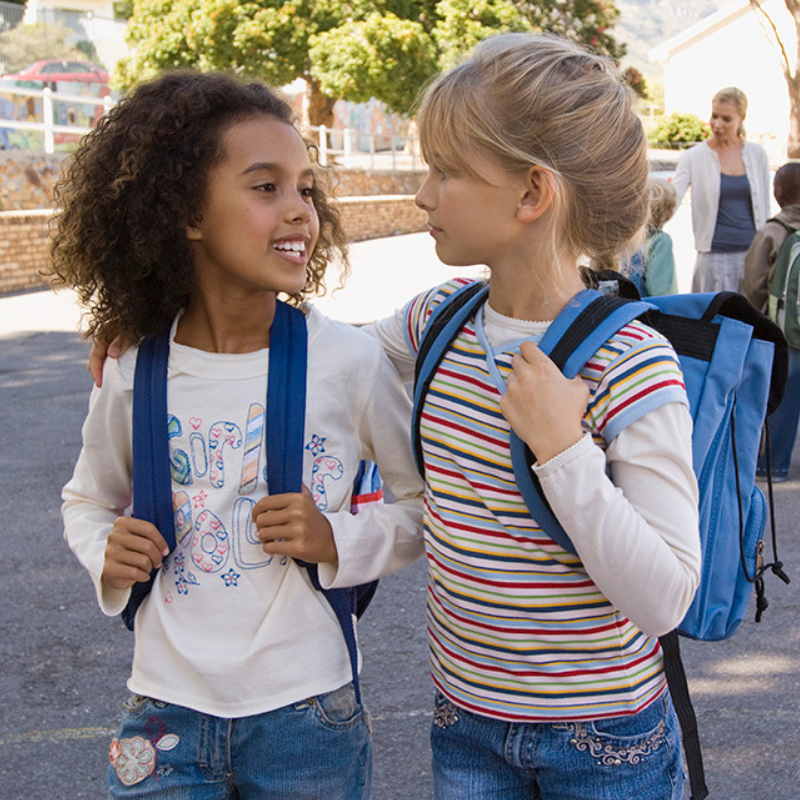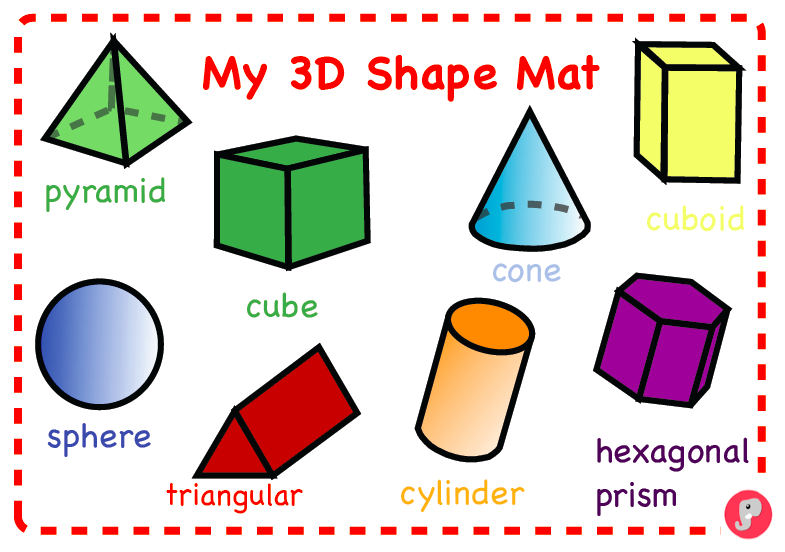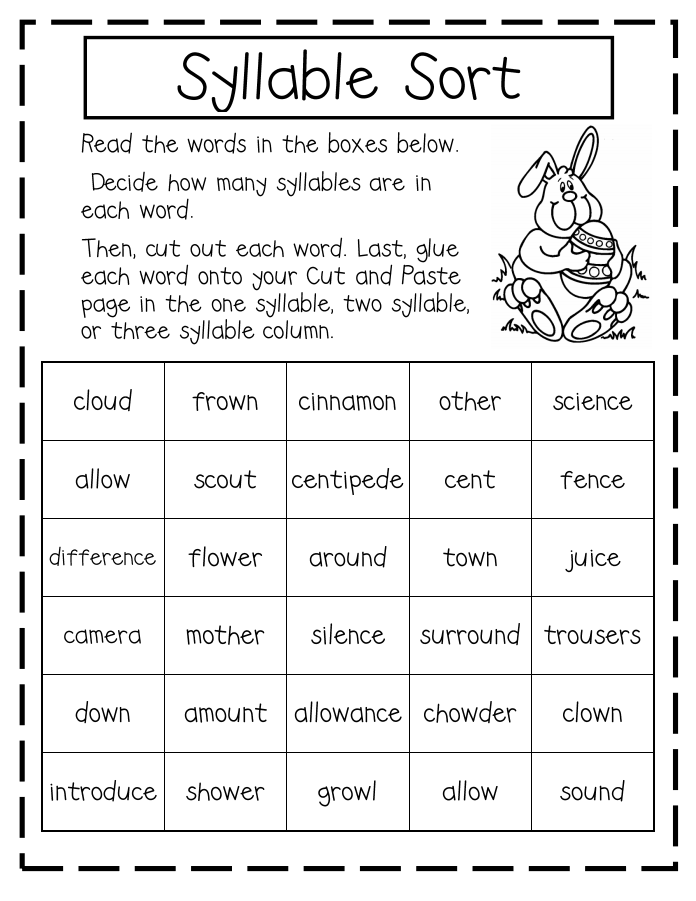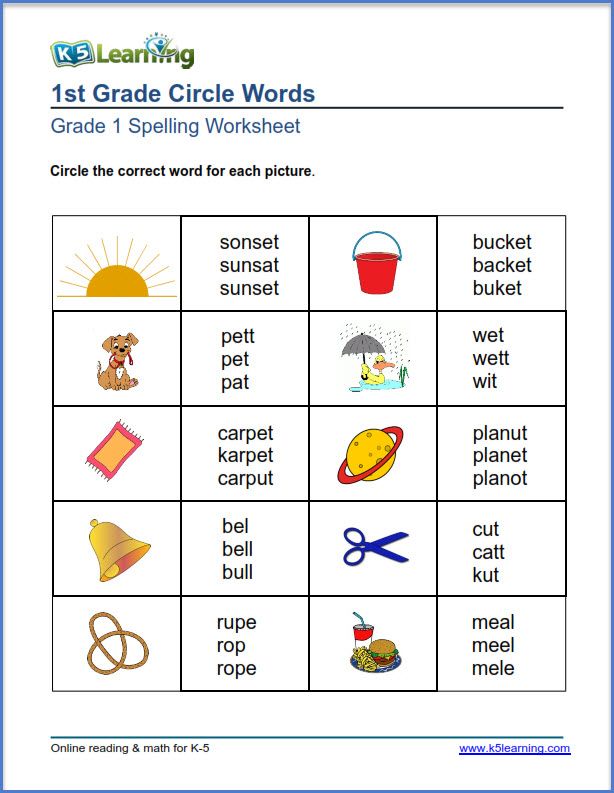Social skills middle school
Here's How to Teach Social Skills to Middle and High School Kids
This post originally appeared on the blog Pathyway 2 Success.
Most middle and high school teachers like to hope that students come to them already pre-programmed with strong social skills and abilities. It would definitely make classes easier, but we know that it is not true in many cases. Sometimes, problems with lacking social skills actually manifest themselves as behavioral challenges. For example, the student who is always interrupting in class may not know or understand the social rule that he should wait his turn. The student who constantly gets in trouble during group work might not know the group ground rules and how to work with others. Lastly, the student who gets involved in lots of drama and arguments with peers in your class might struggle with peer relationship skills. All of these behavioral challenges that cause such distress in our classrooms can be aligned with a lack of strong social skills.
Once you recognize that a student or group of students need some social skills support, the next step is providing the instruction that will teach them the social skills. If they do not have good social skills by middle or high school level, they will likely need a lot of direct instruction, practice, and support to make good progress. Kids CAN learn social skills though, regardless of their age.
What makes social skills instruction so challenging at the middle and high school level is that there usually is not any time in the day to focus on these skills. In elementary school, there might be a morning meeting time, small groups, and recess – all great times that teachers, school counselors, and social workers can target teaching social skills. At the middle and high school levels, though, the level of academic rigor is increased significantly, leaving minimal time for social teaching. Still, there are ways to weave social skills instruction into your classes.
- Use literature to discuss social behavior.
 While reading a passage or book, use the characters to highlight social skills and behavior. Ask questions like, “Why do you think he did that?” and “How did his actions impact the others?”. Even more, highlight and discuss specific skills that some of your students might have challenges with. This is a great way to incorporate teaching social skills because it makes it less personal for kids.
While reading a passage or book, use the characters to highlight social skills and behavior. Ask questions like, “Why do you think he did that?” and “How did his actions impact the others?”. Even more, highlight and discuss specific skills that some of your students might have challenges with. This is a great way to incorporate teaching social skills because it makes it less personal for kids. - Use small group work to review social skills. This goes for any group or partner work, such as science labs, partner reads, think-pair-shares, and more. Prior to starting group or partner work, review how your students should work with others. Explain and show what it means to keep eye contact with your partner, to listen to your group members, and to do your fair share of the work. These are essential social skills when working with groups or partners. You can find more direct instruction with the Working with Others – Groups and Partners workbook.
- Allot a short period of time to social skills each week.
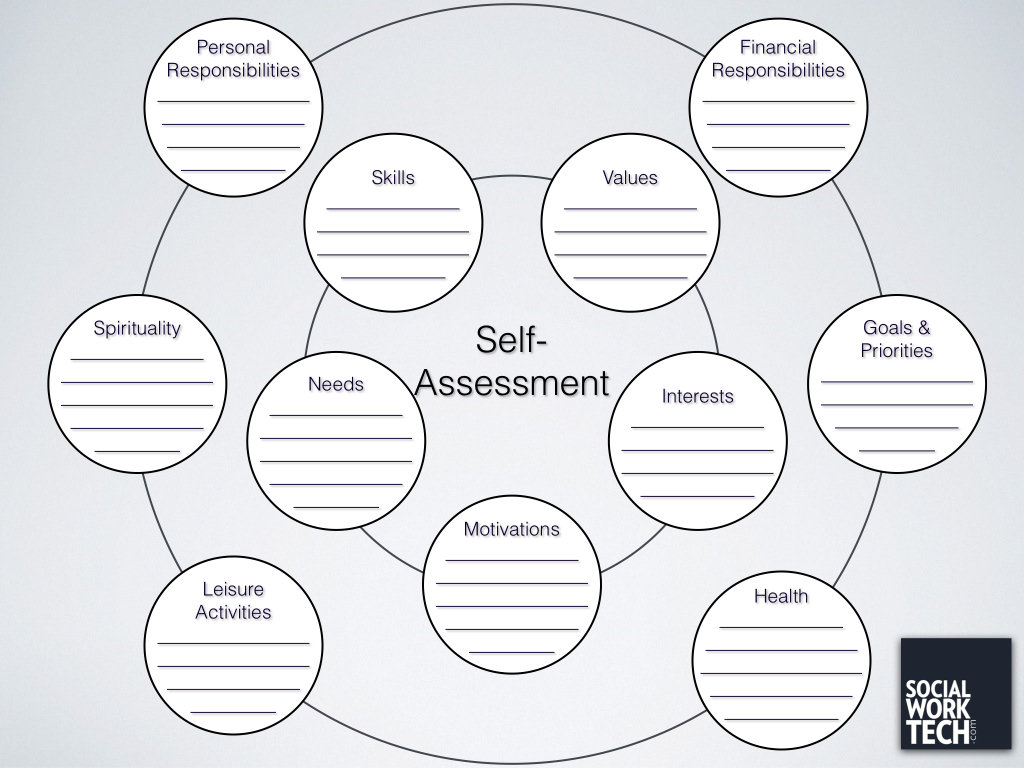 This can be done during resource room, study hall, or an advisory period. Focus on explicitly teaching and practicing the social skills your kids need. Consider running a social skills group once a week for 20 minutes. Adding peer role models will help significantly.
This can be done during resource room, study hall, or an advisory period. Focus on explicitly teaching and practicing the social skills your kids need. Consider running a social skills group once a week for 20 minutes. Adding peer role models will help significantly. - Train peer role models to support social needs. Kids just learn better from other kids. This is especially true when it comes to social skills. Spend time training some peer role models to give cues and reminders to their “buddies”. Training them is simple – just privately meet with the student and direct them: “When you see Jimmy _____, just remind him to ______”. For example, in a science lab, “When you see Jimmy out of his seat during group time, just remind him to stay with his group”. The peer reminder will go farther than one from an adult.
- Talk with the school counselor and social worker. The other support staff in your building may have other ideas and strategies for how to support kids inside and outside of your classroom.
 Find out if they are running any social skills groups and give names of kids who you think could benefit.
Find out if they are running any social skills groups and give names of kids who you think could benefit.
If you find yourself needing to practice social skills in your middle and high school classroom, try these Social Skills Task Cards for Middle and High School. It is a pack of 100 task cards specifically designed for middle and high schoolers. The cards are organized into five different sets that target different skills: Basic Interactions, Conversations, Empathy, Friendships & Relationships, and Conflict Resolution Skills. You can use them during a lunch group, study hall, resource room, advisory period, or anytime you have a few minutes left over in you class period to review.
Practice social skills with these task cards for middle & high school kidsTake the time to teach social skills and it will pay off – not only for your students but for your classroom management, too!
***
Pathway 2 Success is a middle school special education teacher who absolutely loves working with kids and young adults. She has been teaching over 10 years at the middle school level, but also has experience teaching elementary grades 2-5. She believes that all kids need the chance to find their “pathway to success”. Check out her TpT store Pathway 2 Success, visit her blog, or follow her on Facebook.
She has been teaching over 10 years at the middle school level, but also has experience teaching elementary grades 2-5. She believes that all kids need the chance to find their “pathway to success”. Check out her TpT store Pathway 2 Success, visit her blog, or follow her on Facebook.
Visit her Teachers Pay Teachers store
Most Important Social Skills for Middle School
There’s a lot for your child to learn in the time they go from toddler to teenager. But it’s important not to forego the social skills lessons along the way that will get them to a place of well-being!
The tween years may be a gentler time before the advent of the teenage years, and that’s why it’s so important for kids to work on their social abilities. Fortunately, there are a few activities for middle school that can help!
Using Eye ContactMaking eye contact can be one of the most difficult social skills for kids. However, utilizing this simple gesture can be a meaningful IEP goal that helps them communicate without words and display comprehension.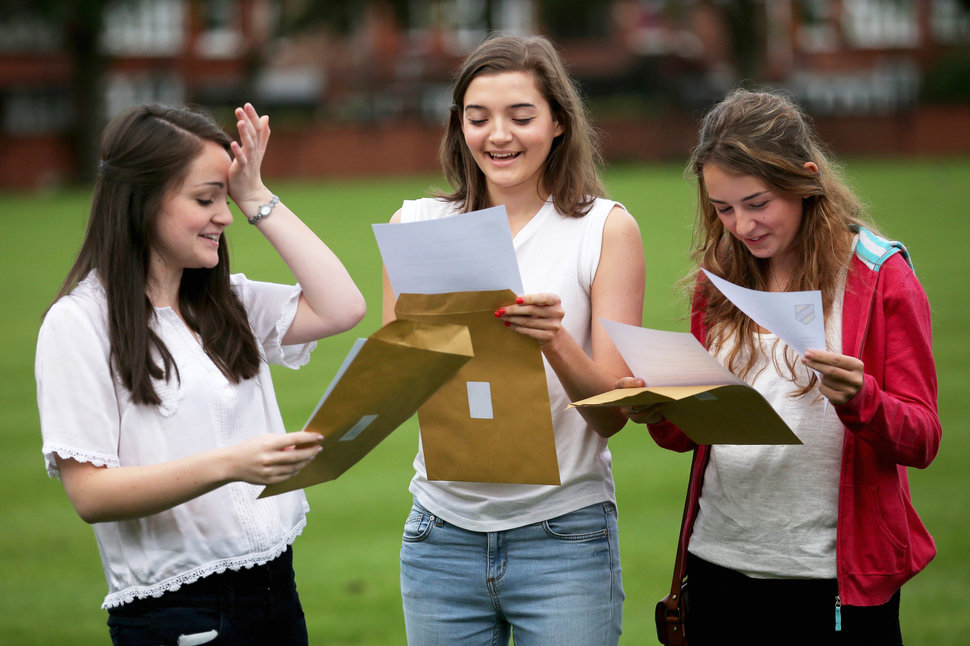 If your child is struggling with this, try the 50/70 rule so they utilize eye contact 50 percent of the time when talking and 70 percent when listening. Or have them hold eye contact for five to ten seconds at a time so they can get used to it.
If your child is struggling with this, try the 50/70 rule so they utilize eye contact 50 percent of the time when talking and 70 percent when listening. Or have them hold eye contact for five to ten seconds at a time so they can get used to it.
Whether it’s about their favorite activity or a food they love, kids are used to being asked questions. However, questions in one direction don’t make for highly developed social skills. The art of conversation is an important part of developing relationships, and it makes for a mindful kids’ activity! To encourage this, ask your child a question and wait for them to answer. Then, encourage them to ask you a question. Over time, they’ll be able to adapt to many different subjects.
Meeting & Greeting PeopleA first impression might not seem so important when you’re young. But, as your children get older, knowing how to make a good impression will be important in their interactions.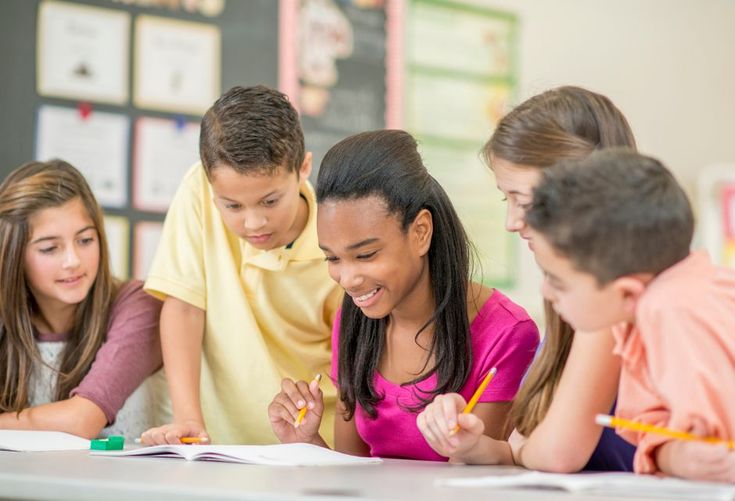 Fortunately, this is among the social skills activities for middle school they can practice at home. Start by showing your children how to introduce themselves. For example, a good start is “Hi, my name is Julie. It’s nice to meet you”. Once they know how to do this, they can focus on using expressions and body language.
Fortunately, this is among the social skills activities for middle school they can practice at home. Start by showing your children how to introduce themselves. For example, a good start is “Hi, my name is Julie. It’s nice to meet you”. Once they know how to do this, they can focus on using expressions and body language.
Empathy may be a less visible social skill, but it’s one of the most important aspects of good social skills. The average middle schooler may be absorbed in their own life, but it’s never too early to start with these kinds of lessons. Fortunately, helping with this skill can be as simple as explaining how you feel in a situation. Or, telling your child about someone else’s difficulty and seeing how you can both make them feel better. Volunteer work can also be one of the best social skills activities to teach your child about other people’s experiences.
ConclusionNo matter what stage of childhood your kids are at, social skills will always be an important part of their healthy development.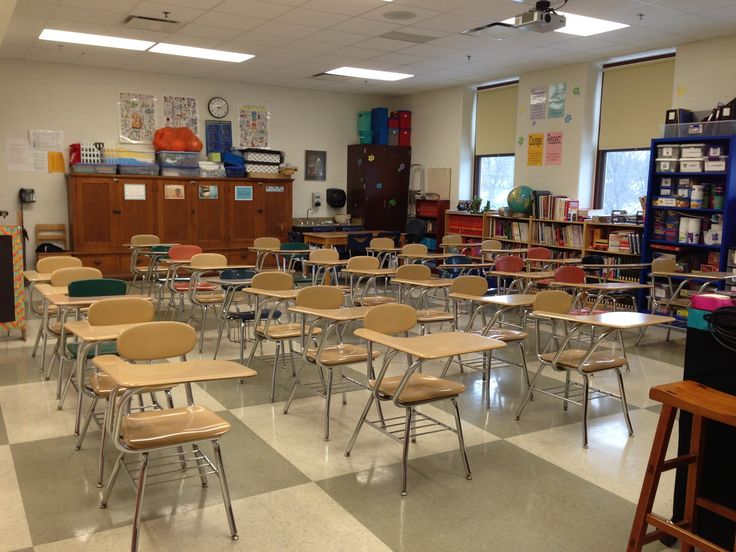 And the learning they do in their middle school years will take them through the more emotionally taxing teenage years! If your child is more introverted and they’re having difficulty opening up, Chat Chains can be the perfect game to help them work on their conversational abilities.
And the learning they do in their middle school years will take them through the more emotionally taxing teenage years! If your child is more introverted and they’re having difficulty opening up, Chat Chains can be the perfect game to help them work on their conversational abilities.
References
VeryWell Family. 7 Most Important Social Skills for Kids. https://www.verywellfamily.com/seven-social-skills-for-kids-4589865
LoveToKnow. Creative Social Skills Activities for Teens and Tweens. https://teens.lovetoknow.com/creative-social-skills-activities-teens-tweens
Raising Teens Today. 10 Important Social Skills You Need to Teach Your Teen Now.
Share this post with your friends
Soft skills or social skills for a student: 85% of success in life
Harvard and Stanford believe that a student's academic knowledge is only 15% of success in his further education, in building a career and in life.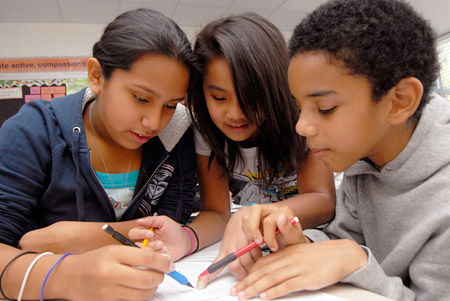
Russian schools actively download knowledge into the heads of our children, but do not teach them social skills, the so-called soft skills - leadership, teamwork, organizational skills, etc. Namely, they allow you to apply the acquired knowledge and achieve your goals: a prestigious university, a successful career, a happy family and true friendship.
A study of Fortune 500 CEOs found that long-term and sustained job success was 75% social skills and only 25% academic.
Therefore, European education has long included the training of soft skills, without which it is difficult to succeed in the modern world. Many of these traits are innate and inherent in every child, but they need to be cultivated and developed. Here are some critical social skills that will help any student reach their goals in life.
TEAM WORK
The ability to listen, the ability to see a common goal and find common ground between a common idea and personal ambitions.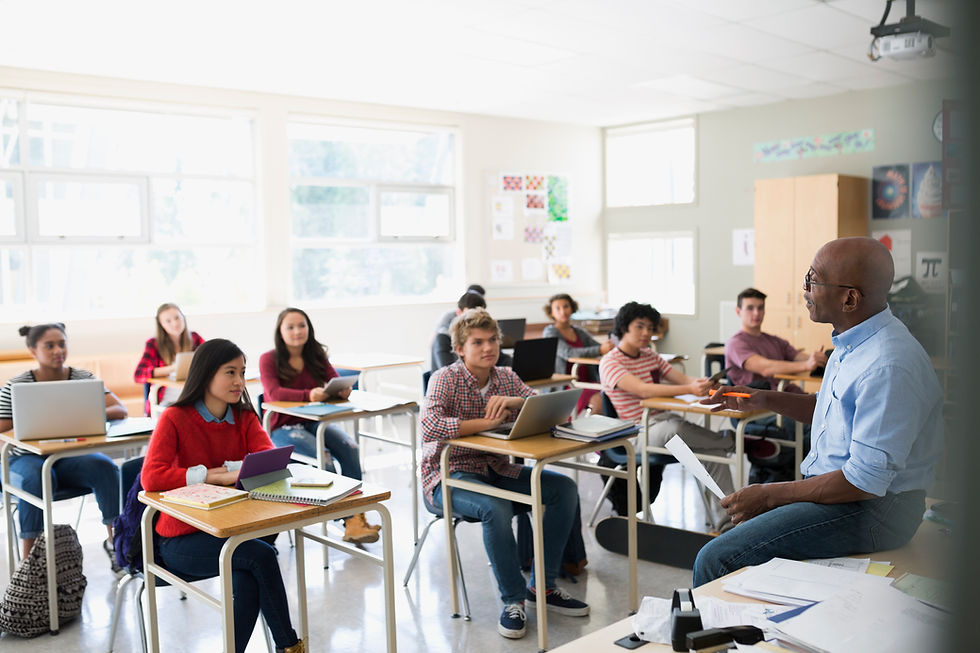 Willingness to help others and support in a difficult situation, the ability to convince and find a compromise.
Willingness to help others and support in a difficult situation, the ability to convince and find a compromise.
Check if your child can:
- do things with other children?
- help someone solve their study question?
- to make sure that not only he, but his entire team achieves the goal?
How it is taught in a foreign school:
- team activities: games, performance, volunteer programs;
- joint academic projects, when the project can be defended only by the whole team;
- competitions between "Houses" for students studying on a full board basis.
Join our Telegram channel!
Be the first to know about discounts, events and important news.
We promise - it will be interesting!
LEADERSHIP
To be a leader means to be a person whom everyone else recognizes as having the right to make responsible decisions for the entire team.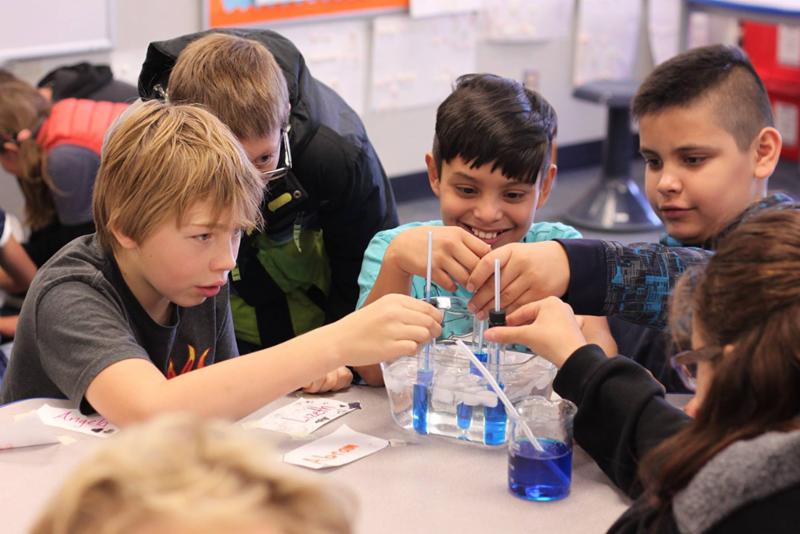
Check if your child can:
- to become a leader for other children: inspire and lead them?
- understand and feel other people?
- to set other children tasks corresponding to their abilities and character and to achieve their fulfillment?
How it is taught in a foreign school:
- Supervision of junior schoolchildren and beginners by high school students;
- Numerous clubs and hobby classes are sure to resonate in the soul of any student, and he will take the initiative in the area that interests him and gather his team of like-minded people.
We are looking for leaders, but not from the category of "president of the chess club", but from those who, faced with a problem, can at the right time take the lead of the team and lead it to the goal
- Laszlo Bock, Vice President of Recruitment, Google
CREATIVITY
A creative person is able to find non-standard, completely new solutions in familiar situations, he is able to invent and implement new ideas.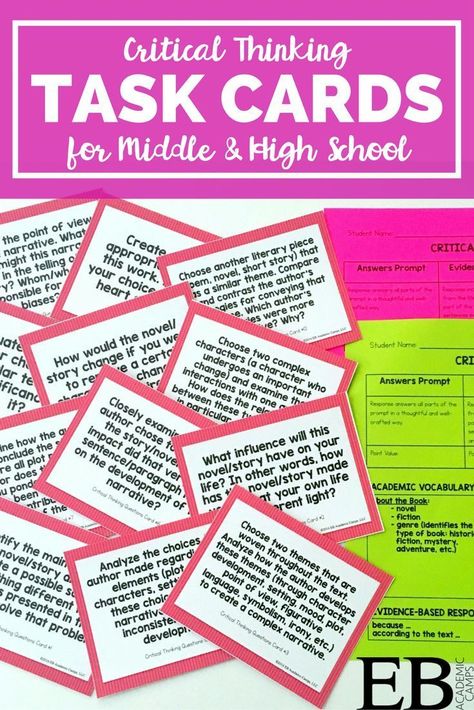
Check if your child can:
- Suggest an idea for a gala evening, fashion design or pop star poster?
- tell your friends the story he made up?
- come up with an idea for a new computer game or mobile app?
How it is taught in a foreign school:
- When solving a problem, the student will be asked not only to give the correct answer, but also to find 10 different solutions;
- Students focus on both academic knowledge and extracurricular activities - music classes, theater productions and acting skills, development of artistic skills. It is easier for a child with a broad outlook to find a non-standard approach to solving a problem.
COMMUNICATION
The ability to communicate, openness and the ability to establish contact with other people, as well as to make the right impression on them.
Check if your child can:
- Is it clear and interesting to express your ideas and thoughts?
- speak confidently with a group of your peers, with a school principal, with other adults?
- perform in front of an audience of 100 people?
How it is taught in a foreign school:
- Students are encouraged to actively participate in discussions in the classroom.
 And the final assessment is influenced by the student's involvement in lectures and seminars and his ability to defend his point of view;
And the final assessment is influenced by the student's involvement in lectures and seminars and his ability to defend his point of view; - Schoolchildren are constantly surrounded by their peers and implement academic projects together, participate in sports and creative events, attend hobby groups;
- Career days and meetings with universities are regularly held for high school students. Schools set aside time to develop a personal resume, self-presentation skills and interviews.
MANAGEMENT
This is the ability to bring people together to achieve a goal and inspire yourself and others to action. Initiative, demanding of oneself and others, attention to detail, the ability to delegate or do it yourself - all these are important qualities of an organizer.
Check if your child can:
- organize your time so that you can keep up with your studies and take part in extra school activities?
- put together a team to run cross country together or organize a party?
- make quick decisions when things don't go as planned?
How it is taught in a foreign school:
- time management skills are the first thing a student learns.
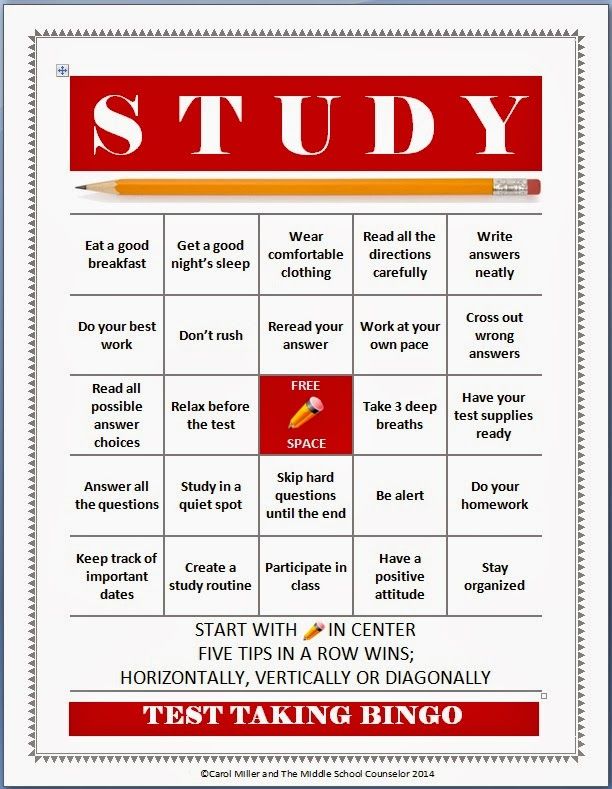 Unlike Russian students, European students do not study from morning to evening. The whole day is scheduled by the clock, there is time for study, sports, hobbies, homework and, of course, time for rest;
Unlike Russian students, European students do not study from morning to evening. The whole day is scheduled by the clock, there is time for study, sports, hobbies, homework and, of course, time for rest; - Participation in numerous school events requires a variety of skills from a student, including the ability to organize an exhibition, a holiday, a performance, a debate, a sports match, and much more.
POSITIVE
Faith in yourself and in other people. This is such a view of the world in which a person can look at events from different angles and prefers to find positive in everything that surrounds him.
Check if your child can:
- keep a smile on your face despite the challenges?
- to fight and not give up, even when you fail to achieve the goal?
- try to solve your problems on your own, without immediately resorting to your help?
How it is taught in a foreign school:
- Support and attention of teachers, mentors and high school students.
 The school is well aware of the difficulties students face and is always ready to help with advice and pay attention to positive events.
The school is well aware of the difficulties students face and is always ready to help with advice and pay attention to positive events. - A healthy competitive environment helps students focus on their goals and not on temporary setbacks.
CURIOSITY
Intellectual curiosity, thirst for new knowledge, interest in the world around and desire for new experiences. This is a natural quality of any child and it is important to preserve it.
Check if your child can:
- look up from your phone or tablet and look around when you are driving?
- when you find yourself in a new place, try to find out something about it?
- ask questions about how the world works?
How it is taught in a foreign school:
- The task of every teacher is not only to prepare a student for the final exams, but also to make him fall in love with his subject. The first thing that Russian children and parents notice is that students in European schools love to study.
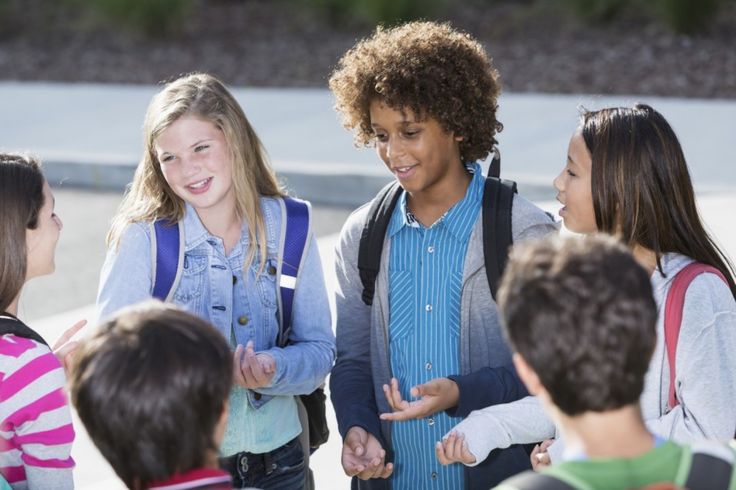
- Well-equipped classrooms and laboratories - here you can study not only theory, but also try everything in practice. Chemistry, physics, biology become especially exciting.
- School activities also include guest lecturers and thematic excursions. Children can learn first-hand about the subject and specialties: who you can become in the future, how you can apply the acquired knowledge in practice, what kind of employees employers want to see.
Most children are not very self-confident. They worry about entering a new social situation, about learning new skills, about having to complete a new task, even more difficult. They seek help and support from friends, parents, teachers, and this is natural.
Studying in European schools, students develop their social skills, becoming more self-confident. These skills have nothing to do with intelligence, the ability to quote Shakespeare in the original, or mentally multiply three-digit numbers. But the ability of a child to clearly formulate thoughts, offer alternatives and respect someone else's point of view will make him successful in all areas of life. After all, as Henry Ford said, confidence is half the battle.
After all, as Henry Ford said, confidence is half the battle.
European schools help students develop their social skills.
They will not appear on your high school diploma or university degree.
But these abilities are important in order to enter a good university, successfully complete it and find a dream job, which means getting a pass to a happy life.
Contact the manager and choose school
by phone +7 (495) 935-85-45
through the request form on the website
See also:
What the school should develop (5 key skills) | British School MCS from MAGIC CASTLE Education
British education in the center of Moscow
Knowledge. A responsibility. Character.
SPECIAL PROJECT
The world is changing so fast that we cannot say with certainty what our life will be like in a year. What can we say about a more distant future - in 10-20 years.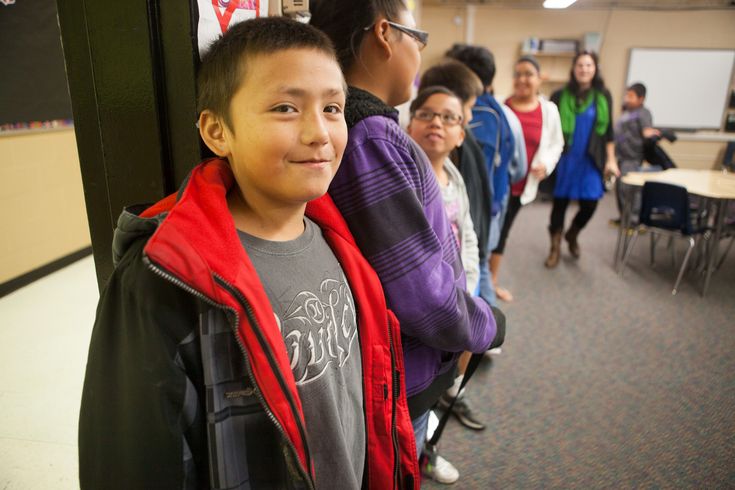 How to plan the education of a child so that he finds himself in a new world unknown to us, overcomes any difficulties and succeeds?
How to plan the education of a child so that he finds himself in a new world unknown to us, overcomes any difficulties and succeeds?
The overwhelming majority of experts agree on one thing: the main thing that we must give the child is a set of flexible skills that will determine his future success. The world's leading schools have integrated the development of soft skills into their curricula. Experts say that education, which is aimed not only at the academic result, but also at the development of the child's personality, opens up new horizons.
Natalie Kaminsky, founder and director of Magic Castle International School in Moscow, spoke to Forbes Education about why soft skills are so important, which ones need to be developed at school, and how high academic standards can be combined with the development of a child's personality.
Soft skills are needed everywhere: in business, art, science, family life. Thanks to them, a person becomes a leader, inspires, leads others, finds non-standard solutions and does not give up in difficult situations.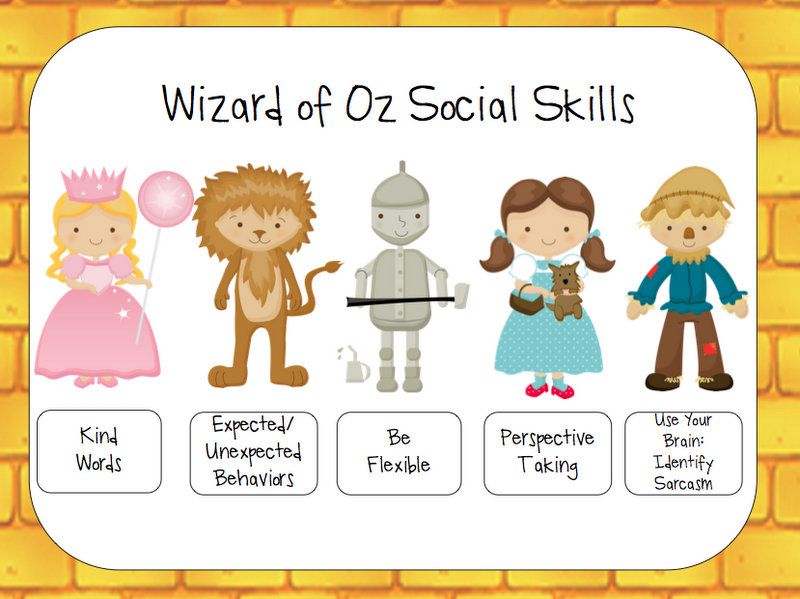 It is important to think about their development at the earliest stages: most of the soft skills are laid from childhood.
It is important to think about their development at the earliest stages: most of the soft skills are laid from childhood.
With the right curriculum, school is an ideal environment for personal development. In addition to academic goals, Magic Castle International School aims to develop key soft skills in its students: a positive and effective attitude to learning, growth and overcoming difficulties, creativity, responsibility, social communication skills.
Self-confidence
The vast majority of people can formulate life goals that they would like to achieve. Unfortunately, when it comes to the implementation of the plan, everything is not so simple. Scientists* have found that self-confidence plays a key role in success. People who believe in their abilities are much more likely to achieve goals: they approach problems more constructively, do not give up when faced with difficulties, and remain optimistic.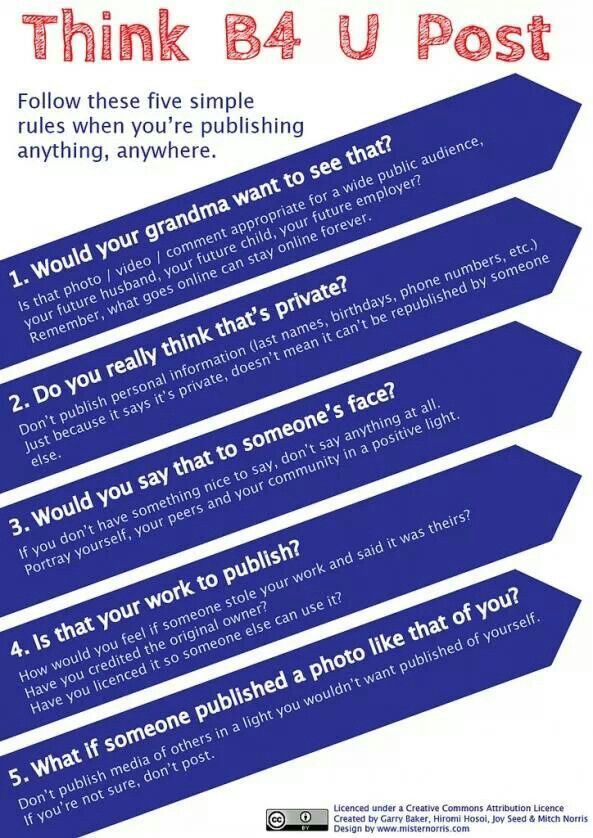 The task of the school is to teach the child not to be afraid of difficulties, to show that he can achieve high results.
The task of the school is to teach the child not to be afraid of difficulties, to show that he can achieve high results.
An overly complex educational program causes the child to lose faith in himself. Too simple - causes boredom and demotivates. In both cases, the child does not feel joy from completing tasks and pride in the result.
All children are different, they need different time to complete tasks and different levels of support from the teacher. We have seen from personal experience that with the right organization of education, every child can believe in himself and achieve outstanding academic results. The task of our teachers is not only to explain the material clearly, visually and as interactively as possible, but also to make sure that each student can independently cope with the completed task. We adapt the program for each student: we add non-standard and complicated tasks if the child easily copes with the topic, and we provide additional support in cases where the material causes difficulties
Motivation
It always seems impossible until it's done (Nelson Mandella).
Have you ever noticed that it costs one person to set a new world record, which seemed unattainable for many years, as less than a month passes - there are people who are able to repeat the achievement. So it was with the conquest of Everest, the 10-second barrier in the 100 meters, the triple Axel in figure skating. Why is this happening? When we know that the goal is achievable, it is easier for us to motivate ourselves on the way to it. What makes leaders different? They strive for ambitious goals and find motivation within themselves, even if everyone around them finds the task incredibly difficult. Self-motivation helps to find the energy and desire to achieve your goals.
It is important to teach children to be constructive about failures and achievements . The words we say when we praise or criticize, inspire and encourage the child, the way the student thinks in situations of difficulty or success, are the key points of development throughout life.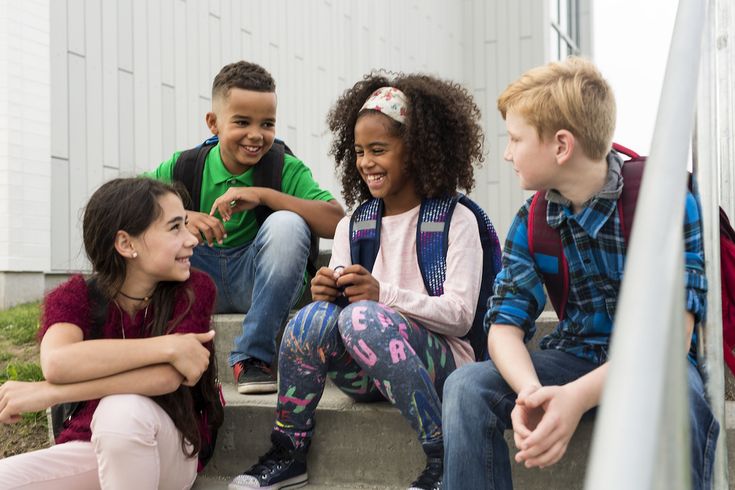
Not only words, but also the environment, the atmosphere can contribute to the development of intrinsic motivation. Even elementary inscriptions on the walls of the school with motivating statements do their job. Moreover, the “Rules for cultivating self-confidence, responsibility and motivation” have become a mandatory annex to the contract.
All Magic Castle teachers are trained in how to praise and give feedback to children, and every phrase we use with students is carefully chosen to ensure a growth mindset.
The teacher must distinguish between praise and encouragement. It is necessary to encourage children constantly, and to praise - for concrete successes. Don't tell your child that he is smart. Tell him, “You did a great job! You did well." If the child did something wrong, first emphasize the positive aspects of this experience: “It's great that you are experimenting with paints. Let's make sure that after any experiments, your room remains clean.
Give your child a positive and personal growth mindset by paraphrasing his language - changing pessimistic scenarios.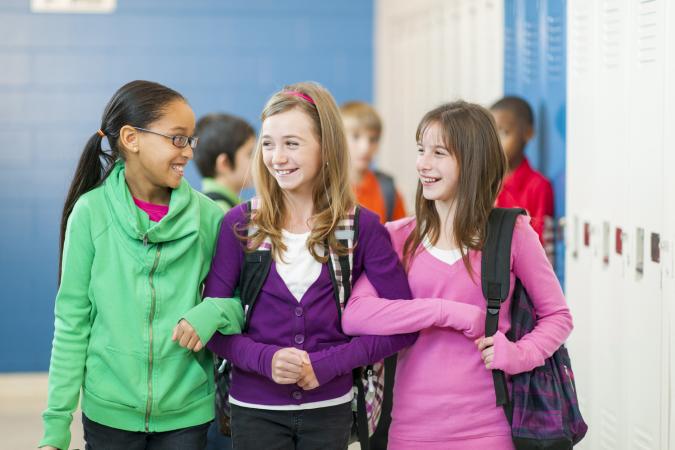
"I can't do it."
"I'm stupid."
"I made a mistake again."
"I give up."
"I can't."
"I'm great at this."
"I need time. I'll try different strategies to solve this problem."
"I need more time. If I put in the effort, I'll get there."
"Mistakes help me learn."
"I can always do better. I will keep trying."
"I can't do it yet, but I'll learn. I'll put in more effort and I'll succeed."
"I tried and learned to do it. I got results because I put in the effort."
Responsibility
To be responsible means to be able to make decisions and bear responsibility for them, to lead people and organize the achievement of a common goal, to fulfill given promises, to be obligatory. The formation of responsibility in children begins at the age of 3-4 and is inextricably linked with the ability to show independence and initiative.
An environment where a child is overprotected or where every step is planned in advance by an adult does not give the child the opportunity to make choices, learn from their mistakes, take initiative and, as a result, develop responsibility. After all, how can you be responsible for other people's decisions?
It is important to observe the principle: "More duties - more rights."
Each child should have an area of responsibility. For example, household chores might include cleaning, caring for pets or plants, loading/unloading the dishwasher or washing machine, or ironing your own clothes.
At Magic Castle International School, children not only take responsibility for their own learning, but also initiate new dishes on the menu, supervise equipment and order on school grounds, organize events and charity fairs, participate in decision-making regarding the eco-organization of school life and much more.
In today's world, the success of business and personal life is based on the ethics of decision making. That is why mindfulness, emotional intelligence and an open view of the world are of particular importance. We help our students to formulate their life position and values, including through participation in debates on important issues of politics, economics, ecology, and social development.
Creativity and critical thinking
The ability to think creatively is required not only for representatives of creative professions. This skill is becoming more and more in demand in a variety of professional fields. And there is nothing to be surprised at: the ability to find non-standard solutions and quickly respond to the situation is exactly what is needed in the face of constant change and instability. Creative and critical thinking can be developed and trained. And where else to do this, if not at school - after all, it is here that the child faces new challenges every day.
The standard Russian school curriculum does not always give a child the opportunity to realize their creative potential, as it is primarily focused on the development of technical and standardized skills.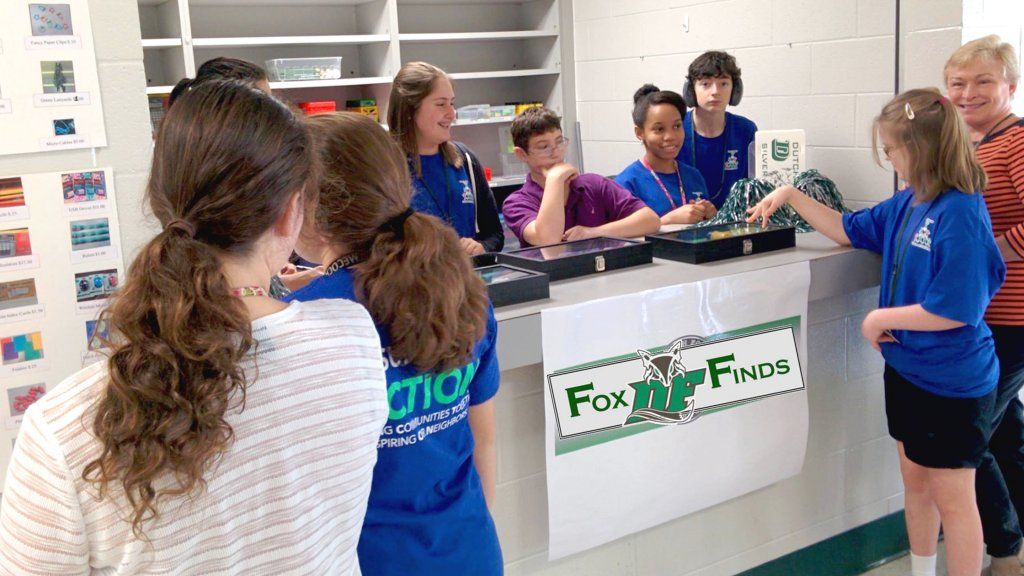 Unfortunately, not all teachers are willing to make extra efforts to develop students' creativity.
Unfortunately, not all teachers are willing to make extra efforts to develop students' creativity.
We want our students to be able to critically evaluate information, generate new ideas, find innovative solutions and bring them to life.
A variety of practical and creative activities are an integral part of the British curriculum. Our students have the opportunity to realize their ideas in design or art classes; express their own point of view and ask questions in the lessons of history, physics, geography; look for non-standard solutions to practical problems; write your own poems and stories. We try to create an atmosphere of creativity: the school newspaper, mood board, meetings with interesting and inspiring people, career days, a literary magazine, a wall of poetry, annual video reports about class life - all this is an integral part of learning at our school. In addition, at Magic Castle, students discover their many talents during additional classes in art, music, vocals, sports, choreography, design, cooking, IT and many other subjects.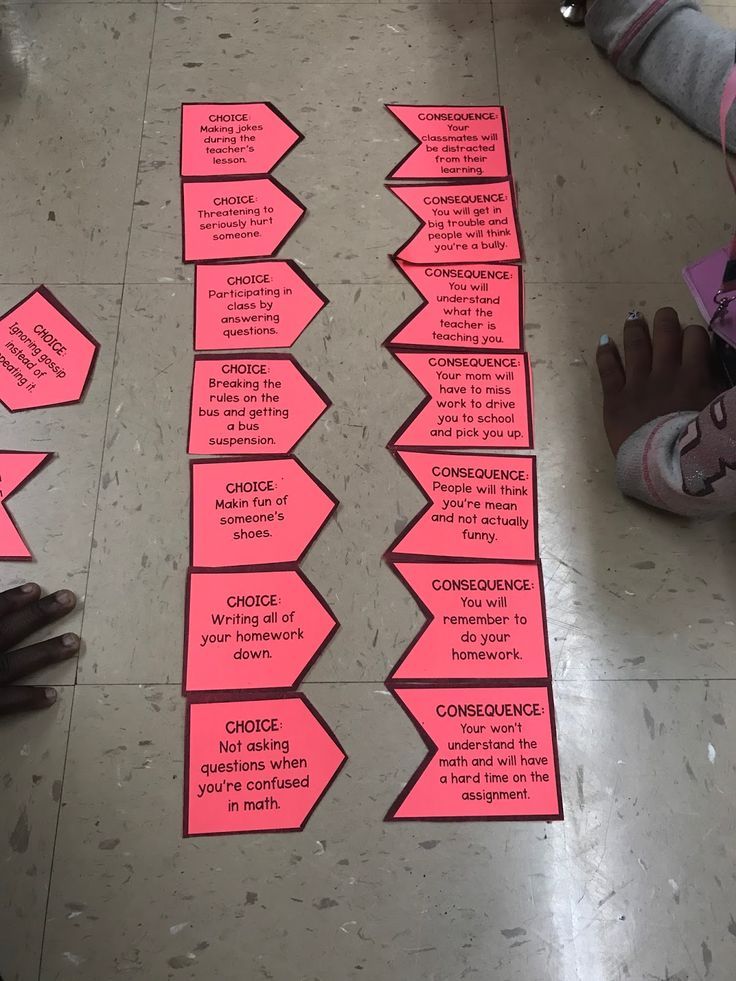
Communication skills
Negotiation, conflict resolution, building relationships - all these skills are considered key in the business environment and often predetermine a person's success not only in career but also in personal life. It is at school through communication with peers that children develop their social skills and form a model of behavior that they will follow in the future when resolving conflicts, persuading, and working in a team.
An atmosphere where the child does not feel safe and sees negative examples of communication - forceful resolution of disputes, aggression, bullying.
The task of the school is to create a comfortable environment where children, on the one hand, independently build relationships with their peers, resolve conflicts and prove their point of view, and on the other hand, always feel the support of a mentor and are confident in their safety. The school must define the boundaries and rules within which children learn through experience effective and ethical communication.
The school must define the boundaries and rules within which children learn through experience effective and ethical communication.
In addition to creating a comfortable environment, we purposefully practice social skills in the classroom.
In addition to creating a comfortable environment, we purposefully practice social skills in the classroom.
Presentations . Children develop the ability to organize information, illustrate it and present it to various audiences. Our students master different types of presentations - elevator pitch, powerpoint, TED TALKS.
Debate . Through participation in debates, children learn to understand the interests of the audience, find persuasive arguments, develop them and structure the information presented logically.
Negotiation .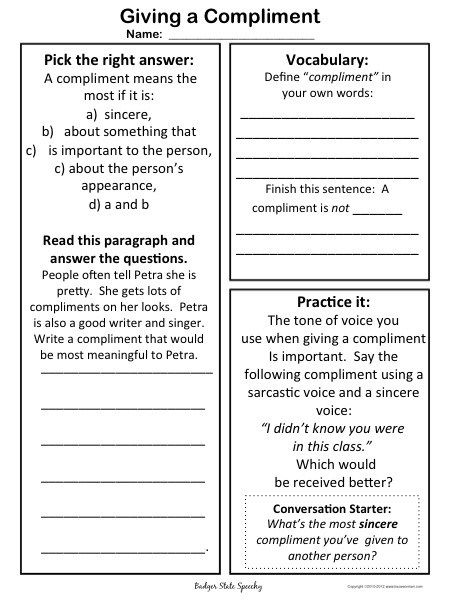 The ability to find a solution acceptable to both parties and to prevent a conflict situation is an indispensable skill both in everyday life and in future professional life.
The ability to find a solution acceptable to both parties and to prevent a conflict situation is an indispensable skill both in everyday life and in future professional life.
Storytelling / Storytelling is one of the most important skills in the world today. The ability to make your story exciting, emotional, and memorable will come in handy during presentations, debates, negotiations, and essay writing.
* Bandura, A. (in press). self-efficacy. In D. Matsumoto (Ed.) Cambridge dictionary of psychology . Cambridge: Cambridge University Press.
July 15 / 2020
#PARTNER_MATERIAL
OTHER SPECIAL PROJECT MATERIAL
What should school education be like to provide a child with a successful future? Parents are talking.
Dual certificate.